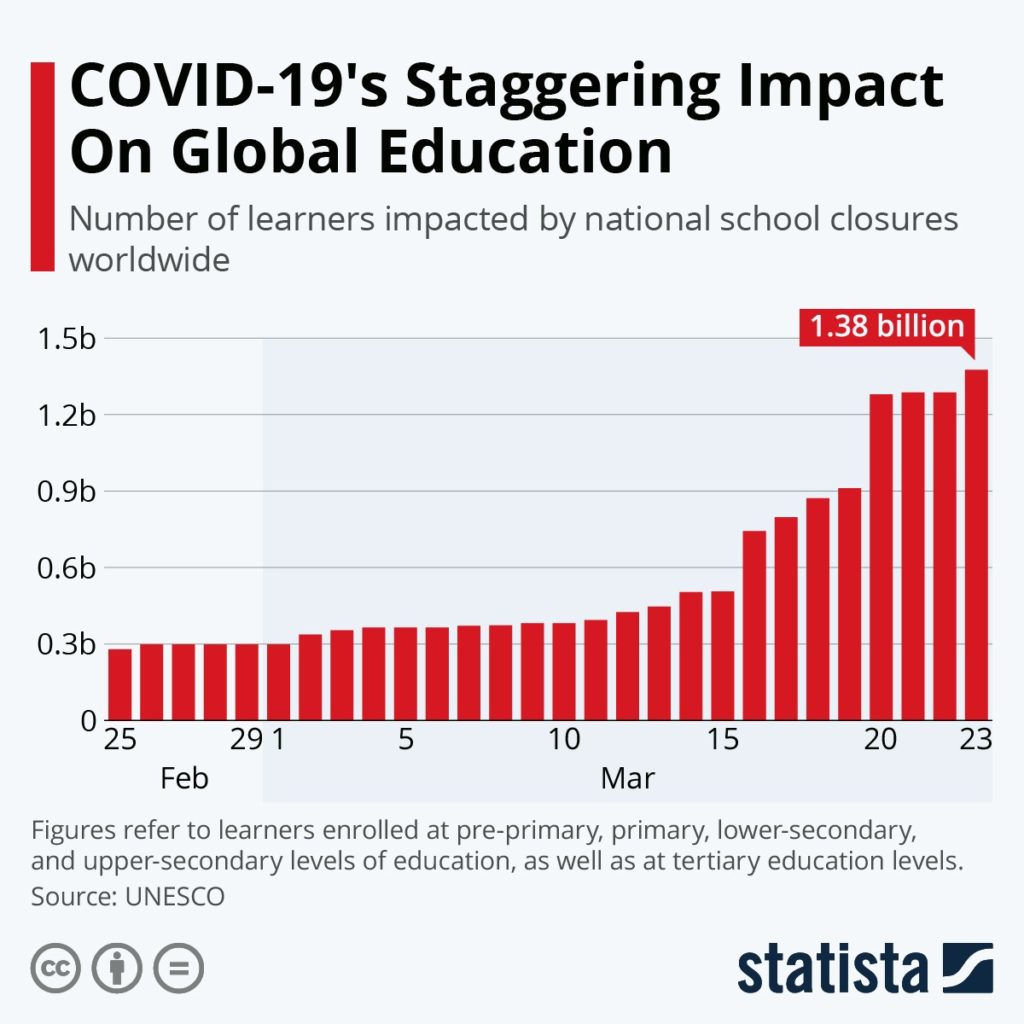Even before the pandemic crisis, over half of the world’s youth and children may not have the required skill sets needed to participate in the emerging global workforce. The estimated year predicted was 2030.
This sends a wave of fear amongst the education industry; reimagining to restructure the learning systems and equip students for the future of work.
Plight due to pandemic
In light of the COVID-19 crisis, most students have lost their sense of learning. Some of the world’s education companies are innovating leaders along with the education system in an attempt to equip students with learning abilities – creative, cognitive, emotional, physical, and social skills to stay prepared for the future.
The present students in schools have been estimated to undergo approximately USD 10 trillion reductions in their lifetime earnings. It is but a sad fact where students must face such situations.
For students, this simply means that they will not be entering the same classroom they used to earlier. However, the education leaders could take this as an opportunity to come up with modernizing the school system and make way as to how learning can be restructured.
Many youths and students have been hugely impacted due to the closure of schools and universities. It is also said that many students might not even return to the education industry ever.
The remedy
We’ve seen how educators and parents have taken a newer perspective toward educating their children. With the help of online tools and learning environments, parents have openly embraced these approaches. Edvantic, one of the world’s renowned education company is on the verge to stimulate learning and develop skills for students and professionals likewise, serving as a platform to bridge the gaps of the ongoing education industry.
The present-day –
- Nearly one-fifth of the youth worldwide (267 million) have already been affected by unemployment.
- In the near future, they’re expected to earn less.
- Due to losses caused by the pandemic, students who are currently in the schools would face about USD 10 trillion reduction in a lifetime saving. This is twice the global annual public expenditure made for primary and secondary education.
The next decade will face the entrance of approximately 1.3 billion people entering adulthood, yet the current approaches still do not provide the development of skills for the emerging global workforce.
Below is a figure describing the impact caused by COVID-19 in the education industry at the global level:

Image source: Statista
Despite understanding the significance of traditional skills, it is also seen that engaging and playful roles have helped children cope up during unpredictable times.
Creativity and the child’s resilience during challenging times will be amongst the top demanding skills that the present learners need to stay in sync with the changing world.
The education system and innovating leaders are now seizing opportunities to modernize learning capabilities for tomorrow’s workers.
You will find that a small number of nations have started getting ahead of the pack in efforts to boost the learners’ creativity skills at large. A report “Creating Systems – how can education systems reform to enhance learners’ creativity skills?” recently released by the LEGO Foundation interviewed Japanese, Thai, Scottish, Welsh, and Australian policymakers regarding their national and regional reforest efforts. As a result, the reports highlighted that the curricula along with teaching and assessment will all be reformed.
Any decisions made in the upcoming years could prove beneficial, thus securing meaningful employment toward obtaining the required skills and knowledge needed to solve complex problems the world is yet to face.
The pandemic crisis poses a challenge to the education industry, however, we must transform the education and learning systems to stay abreast of the future workforce.



